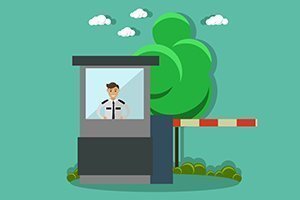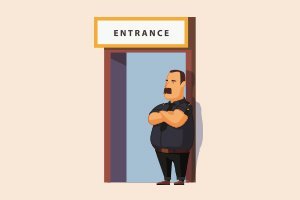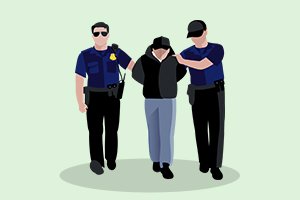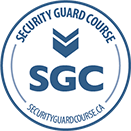The ability to skillfully observe and assess their surroundings is what sets the great loss prevention officers (LPOs) from the mediocre ones. If you yourself are an aspiring LPO, developing strong observation skills is paramount.
This goes beyond just keeping a watchful eye out for suspicious behaviour; it involves understanding your environment, recognizing patterns, and anticipating potential issues before they arise. Whether or not you’re already working in the loss prevention field, there are exercises that you can start doing today to help sharpen your observation skills.
In this article, we’ll explore five exercises that you can use to enhance your attention to detail, situational awareness and overall observational acumen, all of which will help elevate you from a good LPO to a great one!
1. Public Space Observation
Developing your observation skills need not be complex or require much planning. All you need is the desire to learn. Everyday settings such as public spaces, malls, parks, or coffee shops offer a plethora of opportunities to observe a wide range of behaviours and interactions.
Exercise Breakdown:
Location: Choose a busy public area.
Task: Spend 10-15 minutes observing the people around you. Pay close attention to how they interact with their environments and with each other. As you continue to observe, focus on increasingly smaller details.
Goal: Increase your awareness of things like how people carry their belongings, where their attention is directed, how they interact with others.
Reflection: After your observation session, take some time to reflect. Did anything stand out to you as unusual? Were there any behaviours that might be considered suspicious in a retail environment?
The Big Picture:
An exercise like this will help you to develop the ability to notice subtle behaviours and patterns that might indicate that someone may not be what they seem. Using a public space is a great way to mimic the retail environment in which you will be working, allowing you to discreetly observe people and identify out of the ordinary behaviour.
2. Identifying Changes
The ability to notice small changes in your environment is a key skill for an LPO. This might mean spotting a misplaced item or a subtle change in a customer’s behaviour. Being detail oriented can help you detect potential security threats and thefts early.
Exercise Breakdown:
Location: Any familiar room or outdoor space.
Task: Take a few minutes to observe the area carefully. Then leave and have someone make subtle changes. Return and try to identify these changes. Begin with more obvious changes and gradually make them smaller and more subtle as your skill level increases.
Goal: Sharpen your attention to detail by noticing small changes in your surroundings.
Reflection: Consider which changes were easier to spot and which were more difficult. Use this knowledge to devise other ways to train yourself to pick up on even more subtle changes more quickly.
The Big Picture:
Much of the LPO role is to proactively detect and deter theft. The better your attention to detail, the more likely you are to notice something as small as an item missing from a shelf, or a missing tag on a piece of clothing, which may indicate that someone may be preparing to steal from your store.
3. Situational Awareness Walkthrough
Excellent situational awareness is the foundation of effective loss prevention. The ability to quickly assess any environment for potential safety risks and other security vulnerabilities is essential for keeping a store, its employees, and customers safe.
Exercise Breakdown:
Location: Choose a neighborhood, retail store, or any public place.
Task: Walk around the areas, taking note of the layouts, exits, potential blind spots, cameras, and any safety hazards or security risks present. Approach this exercise from the point of view of an LPO.
Goal: Improve your ability to assess environments for safety and security vulnerabilities.
Reflection: Reflect on the areas which could pose security issues. What would you do to address them if you were the one responsible?
The Big Picture:
This exercise helps you develop an eye for spotting aspects of the environment that could lead to safety and security issues. As with all new skills, what at first requires effort and focus soon becomes second nature.
4. Shadowing the Pros
Observing an experienced professional is a tried and true method of developing new knowledge and skills in any occupation. Even if you are not yet working as a loss prevention officer, you can still learn a lot by paying attention to how existing security personnel operate.
Exercise Breakdown:
Location: Visit a retail store, grocery store or department store that uses loss prevention officers.
Task: Without being intrusive, identify who their loss prevention employees are and begin observing them. Pay close attention to where they position themselves, how they interact with customers and what they might be observing.
Goal: Gain real-world insights on how professionals conduct their duties and protect assets from theft.
Reflection: Reflect on how you would approach the same situations. Would you have handled things the same way, or would you have done something differently? If so, what and why?
The Big Picture:
This is an opportunity for you to gain a practical understanding of how the observation skills you have been developing work in the real-world. No matter how much education and training you take, there is no replacement for the real-world application of skills.
5. Object Tracking
The retail environment can be fast-paced and chaotic. The ability to track a specific object or individual amongst the hustle and bustle is crucial for an LPO. This exercise will help you develop the focus needed to follow an object or suspect without losing track.
Exercise Breakdown:
Location: Choose a busy environment, such as a supermarket or train station.
Task: Select an object and mentally track it as it moves through the environment. Make note of who handles it, how it moves, and any changes to its location or condition.
Goal: Develop your ability to focus your attention on a specific item within a busy environment filled with distractions.
Reflection: Reflect on how easy or difficult it was to keep track of the object. What were the obstacles that made it difficult? How can they be overcome?
The Big Picture:
A significant part of an loss prevention officer’s job is to spot items being concealed and then removed from the store by customers without paying for them. The law is also very strict in terms of when an LPO can make an arrest for theft. The ability of the LPO to keep track of both the person and the item as they move through and eventually out of the store is key to making lawful arrests and protecting assets.
Conclusion
In order to succeed in the world of loss prevention you must have strong observation skills. By incorporating exercises like these into your routine, you will start developing the keen attention to detail, situational awareness and focus necessary for the role.
It is only through regular practice and reflection that these skills will become second-nature. The more you engage in these exercises, the more intuitive and efficient your observation skills will become. If you are just getting into the loss prevention field, these exercises will give you a strong foundation on which to continue building.
If you’ve been at it for a while, they will help you to further hone your skills and build confidence. Join our training course for even more exercises and activities for improving your situational awareness and observation skills.
References:
McKay, B., & McKay, K. (2019, June 5). 10 tests, exercises, and games to heighten your senses and situational awareness. The Art of Manliness. https://www.artofmanliness.com/character/behavior/10-tests-exercises-and-games-to-heighten-your-senses-and-situational-awareness/








